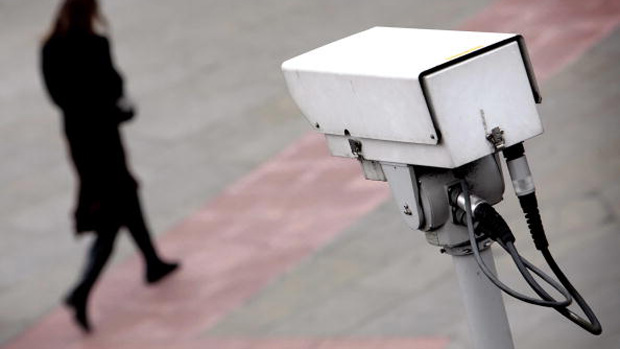HD CCTV: safeguard against crime or the end of democracy?
Advances in surveillance technology mean some CCTV cameras can now recognise a face in a crowd from half a mile away

A free daily email with the biggest news stories of the day – and the best features from TheWeek.com
You are now subscribed
Your newsletter sign-up was successful
THE SPREAD of high-definition CCTV cameras has prompted calls for better privacy laws and regulation. But some members of the public say they feel safer with better surveillance technology.
CCTV can now achieve image resolutions of up to 29 megapixels – more than cameras used by many professional photographers. Some cameras can pick out a face in a crowd from half a mile away and manufacturer's figures suggest there will be 129,299 HD CCTV cameras in the UK by the end of 2012.
The UK government's first surveillance commissioner Andrew Rennison yesterday told The Independent that "technology has overtaken our ability to regulate it" and speculated that Britain might be in breach of its own human rights laws.
The Week
Escape your echo chamber. Get the facts behind the news, plus analysis from multiple perspectives.

Sign up for The Week's Free Newsletters
From our morning news briefing to a weekly Good News Newsletter, get the best of The Week delivered directly to your inbox.
From our morning news briefing to a weekly Good News Newsletter, get the best of The Week delivered directly to your inbox.
Rennison described it as "the Big Brother scenario playing out large" and predicted the latest wave of high-definition CCTV would trigger a public backlash.
Indeed, The Guardian's Henry Porter today calls for a privacy law to protect us "against the state, corporations and the malevolence of future governments".
Porter claims that the technology "threatens our democracy" and warns that cameras operating "for your security" can be updated and converted to recognise faces.
"Wherever you go, someone will be logging your movements – whether it is the police or the big supermarket chains that are anxious to monitor the behaviour of customers in their stores," he writes. "But the vital fact to remember is that all private CCTV cameras may be accessed by the authorities and are therefore, in effect, part of the state's surveillance system."
A free daily email with the biggest news stories of the day – and the best features from TheWeek.com
In the Daily Mail, John Kampfner, author of Freedom For Sale, describes the use of HD surveillance as a "profoundly disturbing trend".
"Britain is one of the most watched-over societies in the world. It used to be said that if you've done nothing wrong, you've got nothing to worry about,” he says. “But do we really want to be monitored round-the-clock, wherever we are? If the man in charge of the system is worried about Big Brother, why shouldn't we be?"
But defenders of the technology note that it helps discourage crime and has helped police identify offenders.
"Whether it's tracking down a thug who brutally mugged an old lady, a vandal who trashed a war memorial or searching for a missing child, CCTV plays a crucial role in tackling crime and making people safer," Mehboob Khan, chairman of the Local Government Association’s Safer and Stronger Communities Board, told the BBC.
Many of the 1,000 members of public who commented on the BBC website made similar points.
"Those against CCTV have probably never been beaten up or serious injured while out on the town," says one commenter Giles Jones. Another said: "I honestly don't see the problem with CCTV. If having them everywhere helps solve even one murder or solve one abduction it's worth it."
But while another said they had "no problem" with CCTV at the moment, they added: "It's the step after this or the one after that which worries me. The government of the day might not want (or dare) to monitor everyone's location constantly but who knows who will be in charge in 10 or 20 years?"
-
 The environmental cost of GLP-1s
The environmental cost of GLP-1sThe explainer Producing the drugs is a dirty process
-
 Greenland’s capital becomes ground zero for the country’s diplomatic straits
Greenland’s capital becomes ground zero for the country’s diplomatic straitsIN THE SPOTLIGHT A flurry of new consular activity in Nuuk shows how important Greenland has become to Europeans’ anxiety about American imperialism
-
 ‘This is something that happens all too often’
‘This is something that happens all too often’Instant Opinion Opinion, comment and editorials of the day